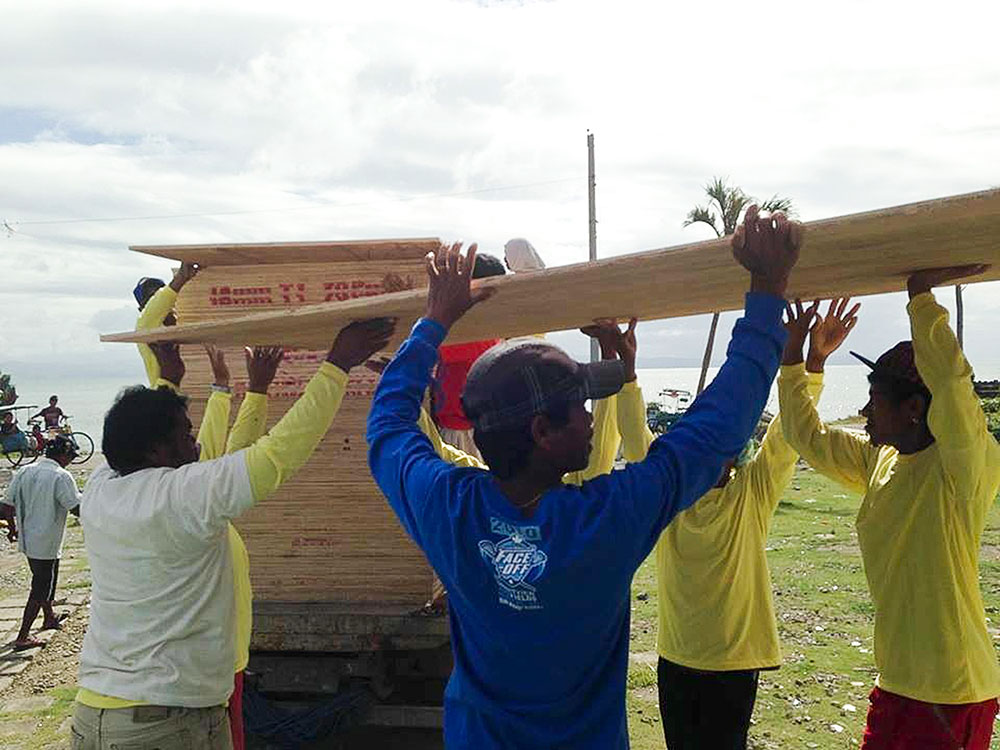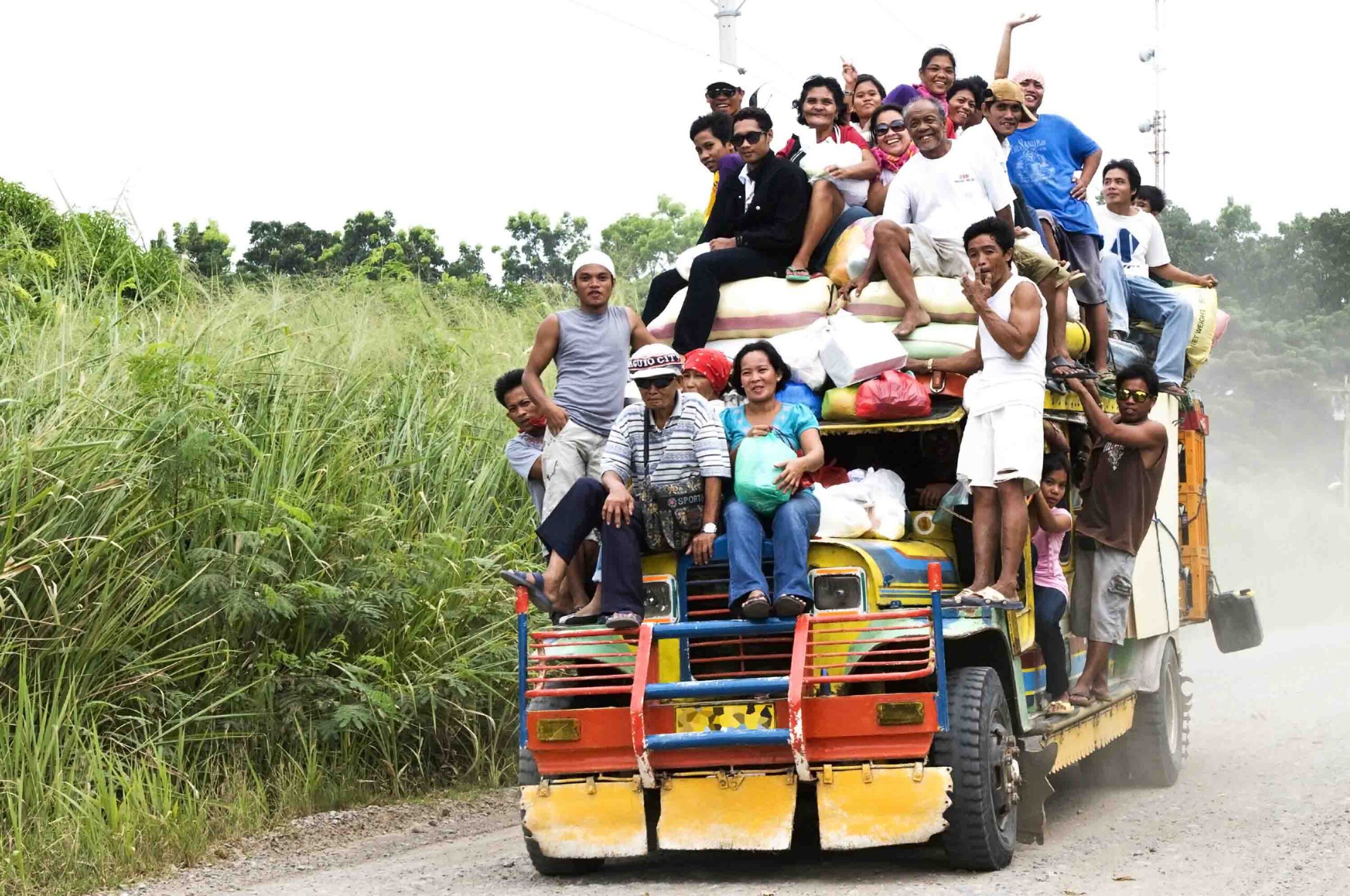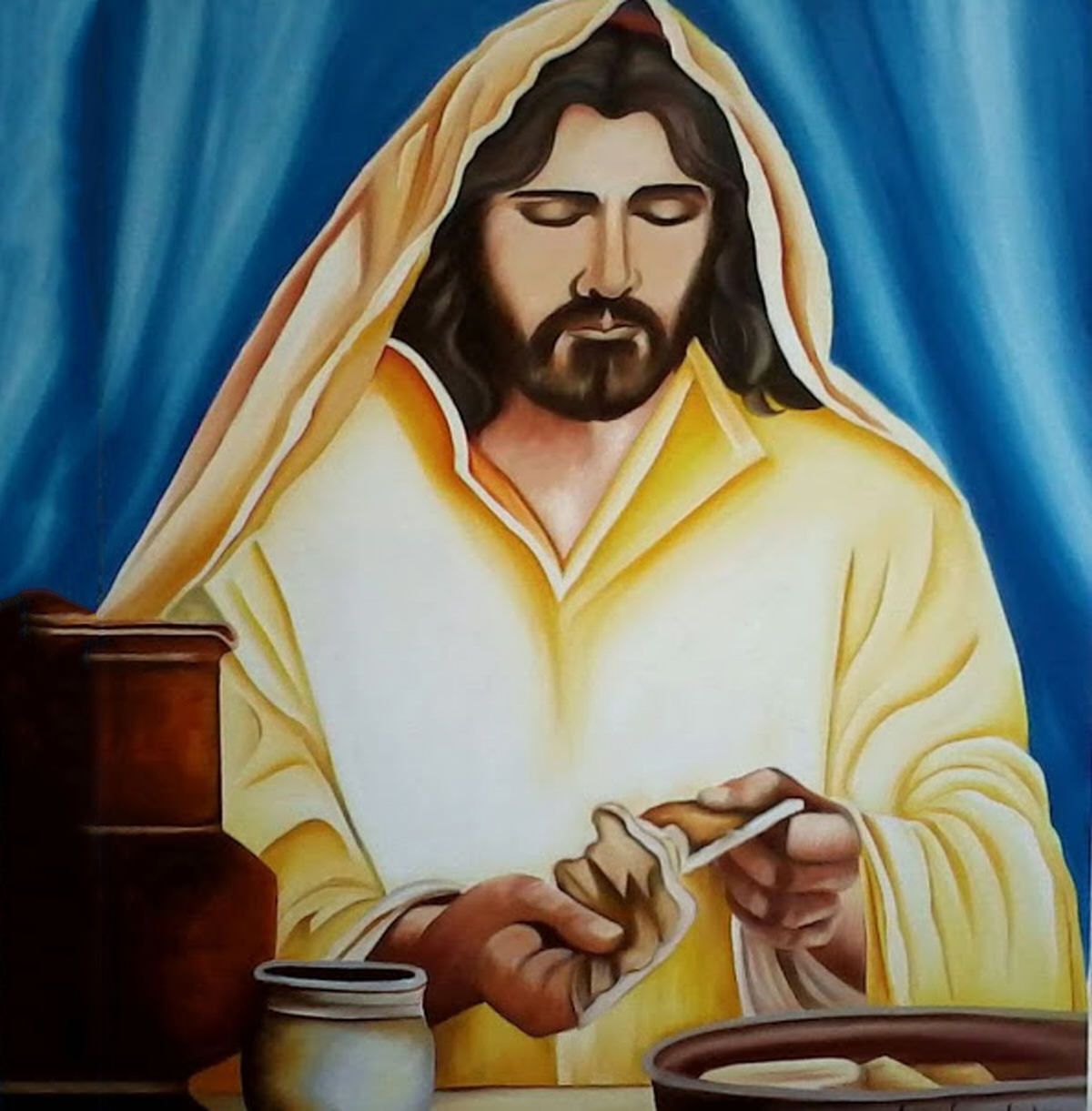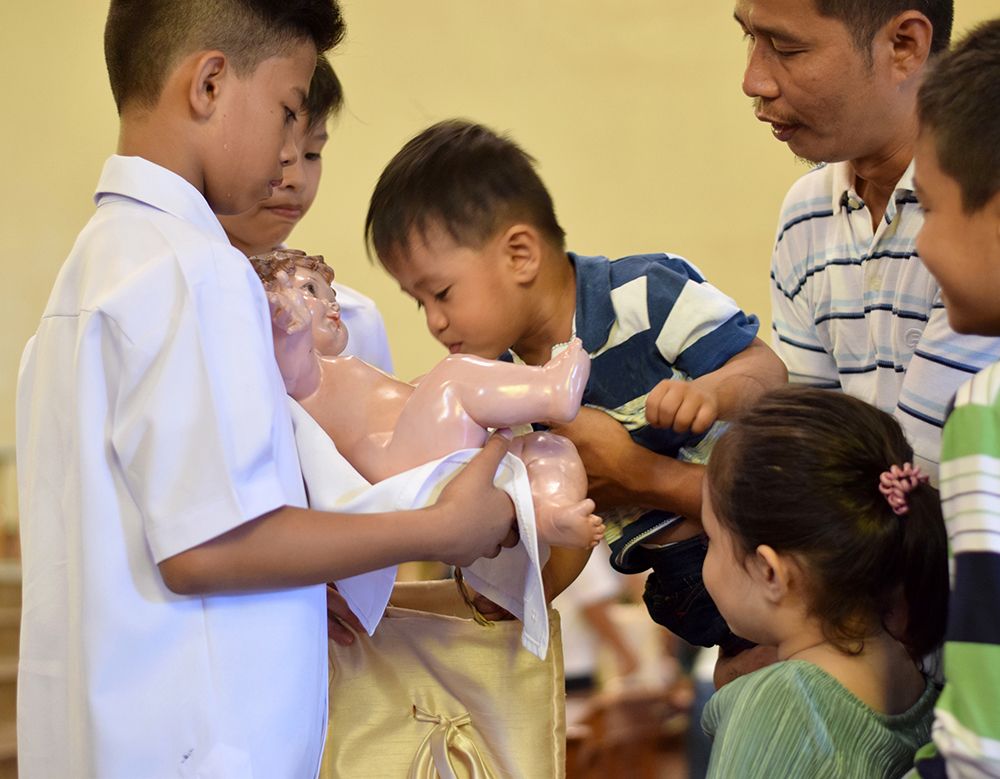I share this reflection in the context of three excruciating experiences of suffering over the last few weeks. All of them forced me to engage God in order to find a way to live the three events in a positive way without giving in to despair and utter rebellion. I grow evermore convinced that engaging God in human dramas as Job, several psalms, many saints and numberless human beings did and still do is at the core of an incarnated faith which does not provide prefabricated and ready-made answers to issues of suffering and grief. The Holy Spirit leads us to positive answers only when suffering and the challenges of life bite our flesh and we let ourselves be challenged and enter into a Jacob-and-Job like fight with God.
Mount Sinai, the mount of revelation, is to be climbed, in 40 days; with its winding and steep path drawing out sweat from the climber’s body. Engaging God is the inescapable journey before one finds a personal answer shared by God and by people or the community concerned. We will never find a “good-for-all” and “for-everywhere” answer to the questions: Why Haiti? Why the tsunami of Christmas 2005? Why that fatal accident… or why that grave sickness? God’s answer is never theoretical and abstract, but different from person to person, like suffering is utterly personal and each human being interprets and reacts to suffering in his/her way. Theological reflection on suffering is by all means useful, such as for example Salvifici Doloris on the redeeming value of suffering by John Paul II in the Holy Year of Redemption and extraordinary jubilee of the Church in 1983-84. But over and above a document, there is a process, led by the Holy Spirit, which is utterly personal and unrepeatable such as a grief that one undergoes.
Multifaceted Suffering
Now a few words on the three difficult experiences mentioned above. The first is at cosmic and world level: Haiti, with its more than 230,000 victims, is the latest natural disaster of unprecedented magnitude. Every year, the list grows with more destructions and victims because, every year, there are and there will be calamities of this kind. They are part and parcel of our cosmic history and of our ecosystem. Gradually, we come to better terms with them through forecasting and tentative measures of preventions such as, for example, having anti-seismic buildings; but the process is slow; science and technology are not born out of the blue and human beings are not infallible. God told us: “Grow and multiply and take care of the world.” The journey is far from being accomplished. The mission entrusted to us in Genesis 1 to take care and exert a certain domain on the cosmos (Cf. Gn 1:26-28) in the ongoing process of creation is far from been accomplished; it is still an open-ended pursuit.
Every day stars die and others are born in the midst of unimaginable apocalypses. Nothing is static! Our earth, as part of a cosmos is ever expanding and changing in the journey toward a future which is beyond our foresight. God is in it, too; it started from Him and will end up in its fullness of life and joy as Vatican II in Gaudium et Spes assures us more than once: “We do not know the time for the consummation of the earth and of humanity, nor do we know how all things will be transformed. As deformed by sin, the shape of this world will pass away; but we are taught that God is preparing a new dwelling place and a new earth where justice will abide, and whose blessedness will answer and surpass all the longings for peace which spring up in the human heart. Then, with death overcome, the sons of God will be raised up in Christ, and what was sown in weakness and corruption will be invested with incorruptibility. Enduring with charity and its fruits, all that creation which God made on man’s account will be unchained from the bondage of vanity” (GS, 39).
Suffering In God Is Far Deeper
The saying that, “if God wanted, that disaster could have been avoided,” is sheer nonsense rooted in a cosmology and theology of creation which are no more tenable. Suffering is in God far deeper than in us. There is a personal and cosmic way of the cross to reach the Resurrection, the ultimate and definitive Sunday, but then it will be eternity not history. The old language of suffering being the ‘price’ of redemption, which makes the salvation of the world sound like a commercial transaction, a bargain between us (in Christ) and God the Father is definitely over. Christ’s suffering, or yours, or mine, or the suffering of an innocent child, is not a weight to be thrown into one side of a divine merchant’s scales, to counterbalance the weight of sin on the other.
The second experience: A family of benefactors lost, on the 21st of December 2009, their 28-year-old daughter, Maria Luísa, in a road accident. Pina the mother and Franco the father, find it almost impossible to reconcile their Christian faith with such a tragedy which occurred almost on the eve of Christmas when the liturgy proclaims God’s “kindness and generous love” (Titus 3:4) for human beings.
The third experience is at a personal level. I am right now undergoing chemotherapy. I share the situation of millions of human beings whose health is undermined and are prey of fears and anxieties.
‘Suffering’ involves more than just pain; it includes both physical suffering and ‘moral suffering.’ Grief, loss, injustice, loneliness and powerlessness to alleviate the sufferings of others are all examples of ‘moral suffering.’ There is a ‘world’ of human suffering, in which we all have a part. We are called to communion and solidarity with one another partly through our shared experiences of suffering.
Beyond Guilt And Punishment
Suffering is primarily not a punishment or a curse by God for a known or unknown crime. The Protestant evangelists in the United States, who branded the earthquake in Haiti a punishment by an irate God against the voodoo-prone Haitians, are hundred percent out of track, cheap manipulators of the mystery of life handled by a triune God who embraces the mystery of the Cross. Suffering is part and parcel of the all-embracing and never-exhaustible mystery of life which includes God, good and evil, life and death, the relationship between life on earth and the life hereafter, between love and suffering which are inseparable. It is self-deception to assert that God can do away with human and cosmic suffering. Suffering is the inevitable price of a journey in God’s company towards the fullness of the Kingdom that lies ahead of us. In the desert of Sinai, God became a wanderer with the Jews to bring, at a higher level, the religious and civic maturity needed to become organized settlers in a state – Palestine. The Exodus was a severe and endless way of the cross; rebellions and grumblings were almost a daily event. Yet, there were no shortcuts! There is a price to religious and human maturity which cannot be done away with. The letter of Saint James is crystal-clear: “Consider it all joy, my brothers, when you encounter various trials, for you know that the testing of your faith produces perseverance. And let perseverance be perfect, so that you may be perfect and complete, lacking in nothing” (James 1:2-4 – The quotes are from The New American Bible).
In all African cultures, suffering is an essential part of the rites of initiation and passage from childhood to adulthood. The candidates for the initiation are not punished for any crime, yet they are to suffer, as a price to be paid to become mature, wise, well-equipped for a life which includes difficulties because of personal and community shortcomings, failures and convictions.
The Challenges Of Suffering
The great Lebanese poet Kahlil Gibran writes in his masterpiece, The Prophet: “For even as love crowns you, so shall he crucify you. Even as he is for your growth, so is he for your pruning. He threshes you to make you naked. He sifts you to free you from your husks. He kneads you until you are pliant; and then he assigns you to his sacred fire, that you may become bread for God’s sacred feast… Some of you say: joy is greater than sorrow – and others say: nay, sorrow is the greater. But I say unto you, they are inseparable. Together they come, and when one sits alone with you at your board, remember that the other is asleep upon your bed…. And he said: Your pain is the breaking of the shell that closes your understanding. Even as the stone of the fruit must break, that its heart may stand in the sun, so must you know pain.”
In the darkest moments of Good Friday, the Resurrection beckons as an active and operating energy. Vatican II states: “It is in the face of death that the riddle of human existence grows most acute. Not only is man tormented by pain and by the advancing deterioration of his body, but even more so by a dread of perpetual extinction. He rightly follows the intuition of his heart when he abhors and repudiates the utter ruin and total disappearance of his own person. He rebels against death because he bears in himself an eternal seed which cannot be reduced to sheer matter. All the endeavors of technology, though useful in the extreme, cannot calm his anxiety; for prolongation of biological life is unable to satisfy that desire for higher life which is inescapably lodged in his breast” (GS, 18).
Frequently, the highest expression of human solidarity, gratuitousness, selfless love are prompted by explosions of suffering. Tsunami 2005 and Haiti 2010 are glaring examples. Without such a stimuli, human beings seem to slide down into indifference and egocentrism. Without the ongoing regeneration of human race, through the challenges of suffering, humanity would be plunged into an abyss of superficiality.
Christ Turned Suffering Into Redemption
The mission of Jesus is linked to suffering. Proclaiming liberty to captives, healing the sick, comforting the afflicted and raising the dead are not simply a series of signs to call attention to His teachings, but an intrinsic part of our redemption. In bringing about human redemption through suffering, Christ raised human suffering to the level of redemption. Matthew puts it in this way: “When it was evening, they brought Him many who were possessed by demons, and He drove out the spirits by a word and cured all the sick, to fulfill what had been said by Isaiah the prophet: ‘He took away our infirmities and bore our diseases’” (Mt 8:16-17). In all miracles, Jesus was existentially touched and transformed, each miracle was a living anticipation of Good Friday in the suffering of the sick and of the Resurrection in the healing itself.
Christ took human suffering upon Himself, not only in participating, as we all do, in experiences like fatigue, homelessness, and so forth but also in His Passion. Christ accepts this suffering out of love for the Father and for us. Just as our suffering exceeds that of animals, so the Incarnate Son has a deeper capacity to suffer. His suffering has human dimensions, but it also has unique depth and intensity because the person who suffers is the Son of God. The suffering of the Cross embraces the total measure of evil contained in a world of sin. It is given meaning by the love which leads Christ to embrace it. Good is drawn from suffering, just as the supreme good of redemption is drawn from the supreme suffering of the Cross. This leads us to view the question of the meaning of suffering in a new light.
Good Shepherd
With A Pierced Heart
Thus, in Christ, our suffering is not only human but also divine. It is human because, in suffering, we discover ourselves, our own humanity, dignity and mission. It is divine because it is rooted in the divine mystery of the redemption of the world. Passion in Jesus always includes the Resurrection. In the well-known three predictions, Passion is never separated from the Resurrection: “From that time on, Jesus began to show His disciples that He must go to Jerusalem and suffer greatly from the elders, the chief priests, and the scribes, and be killed and on the third day be raised” (Mt 16:21).
The same logic in Vatican II: “Pressing upon the Christian to be sure, there is the need and duty to battle against evil through manifold tribulations and even to suffer death. But, linked with the paschal mystery and patterned on the dying Christ, he will hasten toward the Resurrection in the strength which comes from hope. For, since Christ died for all men, and since the ultimate vocation of man is, in fact, one and divine, we ought to believe that the Holy Spirit, in a manner known only to God, offers to every man the possibility of being associated with this paschal mystery. Such is the mystery of man, and it is a great one, as seen by believers in the light of Christian revelation. Through Christ and in Christ, the riddles of sorrow and death grow meaningful. Apart from His Gospel, they overwhelm us. Christ has risen, destroying death by His death; He has lavished life upon us so that, as sons in the Son, we can cry out in the Spirit; Abba, Father” (GS, 22).
According to the Letter to the Hebrews, Jesus became, as it were, Good Shepherd by sharing human suffering, trials and temptations: “Therefore, He had to become like His brothers in every way, that He might be a merciful and faithful High Priest before God to expiate the sins of the people. Because He Himself was tested through what He suffered, He is able to help those who are being tested” (Heb 2:17-18).
“For we do not have a High Priest who is unable to sympathize with our weaknesses, but One who has similarly been tested in every way, yet without sin. So let us confidently approach the throne of grace to receive mercy and to find grace for timely help” (Heb 4:15-16).
“In the days when He was in the flesh, He offered prayers and supplications with loud cries and tears to the One who was able to save Him from death, and He was heard because of His reverence. Son though He was, He learned obedience from what He suffered; and when He was made perfect, He became the source of eternal salvation for all who obey Him, declared by God High Priest according to the order of Melchizedek” (Heb 5:7-10).
Apostolic Value Of Suffering
The apostle Saint Paul declares the apostolic power of the Cross: “In my flesh I complete what is lacking in Christ’s afflictions for the sake of His body, that is, the Church.” In his Apostolic Letter, Salvici Doloris, Pope John Paul II comments: “These words seem to be found at the end of the long road that winds through the suffering which forms part of the history of man and which is illuminated by the Word of God. These words have, as it were, the value of a final discovery, which is accompanied by joy. For this reason, Saint Paul writes: “Now I rejoice in my sufferings for your sake.” The joy comes from the discovery of the meaning of suffering, and this discovery, even if it is most personally shared in by Paul of Tarsus who wrote these words is, at the same time, valid for others. The Apostle shares his own discovery and rejoices in it because of all those whom it can help – just as it helped him – to understand the salvific meaning of suffering” (Salvifici Doloris, 1). Even though Paul, in the Letter to the Romans, wrote that “the whole creation has been groaning in travail together until now” even though man knows and is close to the sufferings of the animal world, nevertheless what we express by the word “suffering” seems to be particularly essential to the nature of man.
“The theme of suffering, in a special way, demands to be faced in the context of the Holy Year of the Redemption, and this is so, in the first place, because the Redemption was accomplished through the Cross of Christ, that is, through His suffering. And, at the same time, during the Holy Year of the Redemption, we recall the truth expressed in the Encyclical Redemptor Hominis: in Christ, ‘every man becomes the way for the Church.’ It can be said that man, in a special fashion, becomes the way for the Church when suffering enters his life. This happens, as we know, at different moments in life, it takes place in different ways, it assumes different dimensions; nevertheless, in whatever form, suffering seems to be, and is, almost inseparable from man’s earthly existence. Assuming then that, throughout his earthly life, man walks in one manner or another on the long path of suffering, it is precisely on this path that the Church at all times – and perhaps especially during the Holy Year of the Redemption – should meet man. Born of the mystery of Redemption in the Cross of Christ, the Church has to try to meet man in a special way on the path of his suffering. In this meeting, man ‘becomes the way for the Church,’ and this way is one of the most important ones” (Salvifici Doloris, 3). Thus, the meaning of suffering is fundamentally changed by the Incarnation. It offers opportunities for insight into oneself, for personal growth, and for demonstrating practical love for others, but these are incidental. Because of the Incarnation, however, we become sharers in the Body of Christ. Our suffering becomes His suffering, and becomes an expression of redeeming love.
The Saving Tree Of The Cross
Another great missionary, in whose life the cross was highly present and strongly appreciated for its apostolic value, was Saint Daniel Comboni. First, the cross as an exodus from the world he was born in, particularly from his decimated and poor family: it was a very difficult decision to say goodbye to his parents for a missionary adventure, where more then 50% would die within the first two years of missionary ministry. Second, the cross as a kenosis, that is, sharing in the life of a continent and of a populace marked by slavery, misery and vulnerable to numberless sicknesses. “I come,” says Comboni, “to make a common cause with you and the happiest day of my existence will be that on which I can lay down my life for you.” Third, the cross as an apostolic martyrdom, that is, the suffering and challenges due to isolation, poor communication, endless traveling particularly across the desert, tensions with other missionaries, scarcity of human and financial resources, natural calamities such as famine and drought, lack of understanding and difficulty in communicating with his ecclesiastic superiors, slanders about his private life, poor health, particularly sleeplessness, sudden and untimely death of collaborators he was mostly counting on.
Until the end, Comboni experienced this apostolic martyrdom. But he also was able to discern in it God’s love, as shown in his letter of October 3, 1881, written 7 days before dying, addressed to Cardinal Simeone of Propaganda Fide: “My God! Always crosses! But when Jesus gives us the cross, He loves us; all these crosses weigh terribly in my heart; but they also increase its strength and courage in fighting the Lord’s battles, because God’s works have always been born and grown like this; the Church was founded in the blood of the God-Man, and of the apostles and martyrs; all the Catholic missions in the world bearing fruits have developed in the image of the Church, and thus they have prospered, grown strong and made progress, in the midst of deaths, of sacrifice and in the shade of the saving tree of the Cross.” (Writings, No. 7225)
One year before, he had written: “The works of God must always be born at the foot of Calvary. The cross, contradictions, obstacles and sacrifices are the ordinary signs of the holiness of a work; and it is on this path strewn with tribulations and thorns that God’s works develop, prosper and reach their perfection and victory. This is the loving and wise economy of God’s Providence, amply borne out by the history of the Church and of all the Apostolic Missions in the world.” (Writings, No. 6337, Report made in 1880 to Cardinal Luigi di Canossa, Bishop of Verona, on the famine and plague of Central Africa in 1878-79.)
Resurrection Through Suffering
Let me wind up this theological reflection by going back to personal experiences. Rita, a spouse and mother, five years ago, underwent a breast cancer operation followed by an excruciating chemotherapy. The sickness, unexpected and unwanted, was something very difficult to reconcile with. The light started beckoning especially with the help of friends in faith who shared that sickness was not a punishment but an occasion, out of God’s love, to prompt a new life at a personal and family level and a new relationship with the parish she belonged to. The Resurrection of Jesus penetrated her life. Now Rita is a new woman, spouse, mother and grandmother, and an enthusiastic apostle in the local community.
In a day of recollection at Loppiano in January 2010, three priests shared the experience of a u-turn in their own personal and apostolic life. For them, life before was normal: duty-inspired, rather dull and routine-like without enthusiasm. Then their crosses came: one was diagnosed with cancer; the second had a tensioned relationship with his bishop and experienced isolation from other priests; and the third underwent an identity crisis due to problems with celibacy. A providential encounter with good Samaritans and a fraternity of priests, helped them in the process of grasping how these apparently negative situations could become a springboard for a new chapter in life as human beings and as priests. They overcame their difficulties and, right now, they are enjoying life. Yes, the resurrection in our human earthly life is not after the cross but in and through the cross!
















